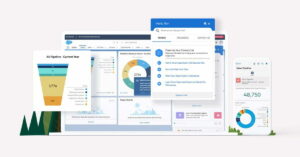Artificial Intelligence (AI) is poised to revolutionise our world. Machines with high-level cognitive processes and decision making, along with advances in data collection and aggregation, presents opportunities to complement human intelligence and enrich the way people live and work.
Recently, Techleap.nl (formerly StartupDelta), a non-profit organisation that helps to quantify and accelerate the Dutch tech ecosystem, has published a new report on the development of AI Startups & Scaleups in the Netherlands.
The company has collaborated with the data provider in Dealroom for the report. Here’re the 8 important takeaways:
Lesser capital
According to the report, the investment rounds in AI startups and scaleups are increasing worldwide except in the Netherlands. In fact, the Dutch AI startups attract less external capital and mainly raise it in smaller rounds.
“Unfortunately, we see that Dutch AI startups are attracting less investment and are deprived of essential data to be able to grow. Hopefully, this report will provide a reason to take a critical look at how we can accelerate the development and marketing of AI,” says Maurice Van Tilburg, Managing Director Techleap.nl.
Most funding flows to AI ventures in the US, the United Kingdom, Belgium, Germany, and France.
Represents 10% of EU AI Companies
Dutch AI startups and scaleups represent 10 per cent of the total number of companies in the European Union, compared to 16 per cent in France and 13 per cent in Germany. Per capita, the Netherlands has the highest density of AI startups in the EU.
Amsterdam dominates the AI landscape
Amsterdam dominates the Dutch AI startup & scaleup landscape. 37 per cent of Dutch AI startups & scaleups are located in Amsterdam. This is followed by Rotterdam, Utrecht, and The Hague.
As per the report, AI scaleups generate a lot of employment; over the past 3 years, employee growth was 33 per cent on average. This is 4x higher than employment growth in the IT sector.
More employment and gender diversity
According to the report, the AI companies in the Netherlands have more gender diversity (15 per cent have female (co)founder) than the global average (11 per cent) but it’s evident that much work still needs to be done.
The report also added that the Netherlands counts 56 AI startups and scaleups that are founded by at least one woman; with examples such as Equalture, Gearbox Innovations, and Seedlink.
Number of exists in decline
The number of exits in the Netherlands has stagnated in the past five years. The number of sales, acquisitions and IPOs of Dutch AI companies declined with 7 exits in 2020 after growing from 3 exits in 2015 to 10 in 2018. The United Kingdom by far has the largest number of exits and exit value compared to #2 France and #3 The Netherlands.
“Exits that do take place happen relatively early. This indicates that the climate for AI startups in the Netherlands with low funding needs and persistent system barriers discourages founders from continuing,” says the release.
Outside of Europe, Israel has seen the largest growth in the number of exits, climbing from 14 in 2015 to 29 in 2019, claims the report.
Popular industries in AI
Health, Fintech, Marketing, and Food are the most popular industries after Enterprise Software. Together they represent 27% of the total number of AI companies in the Netherlands.
Duo-Industrial companies are companies that are active in two industries, such as Robotics and Health. Notably, the report suggests that Robotics and Transportation are categories that jump higher in the list of companies that are active in two industries. On the contrary, Education and Legal appear to be areas where AI startups and scaleups focus tend to focus more singularly.
The limiting factors
According to the report, the frameworks of national and European regulations undermine European competitiveness in comparison to other countries. While companies increase their capabilities and commercial success, they must do so within the framework of national and European regulations.
“For example, Dutch policy on attracting talent from abroad or employee participation is unfavorable compared to other European countries, where our strict data sovereignty is again limited at the European level. This is a challenge, as countries outside the EU do not always sing from the same song sheet, undermining European competitiveness,” says the release.
AI in healthcare barriers
Health is the most popular industry for AI Core startups and scaleups. It’s worth mentioning that AI Core companies grow on average slower than the AI Driven group, as the former are more mature.
The report also shows a selection of barriers that mainly AI companies in the health sector encounter. According to the release, growing from an AI startup to a mature business is difficult in any industry, but a medical startup has many more obstacles to overcome.
Therefore, in order to create a thriving AI ecosystem, the report suggests that certain sectors in the AI startup ecosystem would benefit not only from additional investment, but also from resolving systematic bottlenecks.
Mark-Jan Harte, CEO Aidence, a Dutch medtech startup that improves cancer detection with AI, says: “We have been trying to get data from Dutch hospitals for years. We have not been successful so far. We depend on US data. As Europeans, we want to compete with the US and China, but we cannot make use of European (health) data. That has to change.”
Yosef Safi Harb, CEO Happitech (offers medical grade heart monitoring using a smartphone camera) adds: “The AI HealthTech ecosystem would benefit the most if Dutch hospitals were provided with sufficient resources to seriously study technologies at a faster pace and generate evidence for companies so that they can demonstrate their advocacy and security. At the moment we cannot compete with other countries”.
Call for startups with innovative solutions for the future cities from all over the globe.









